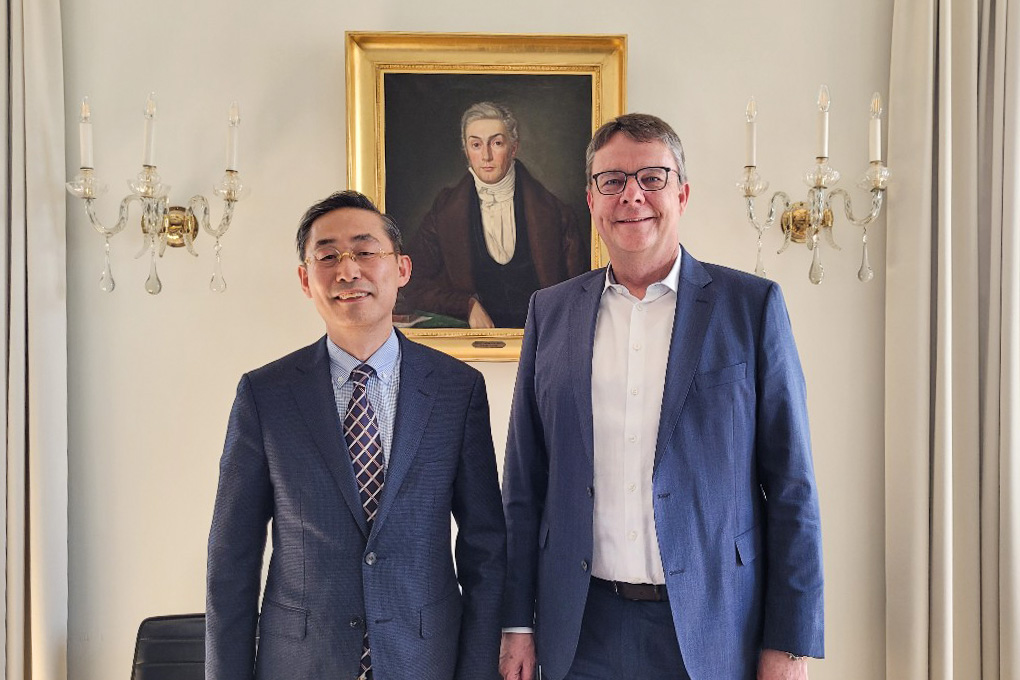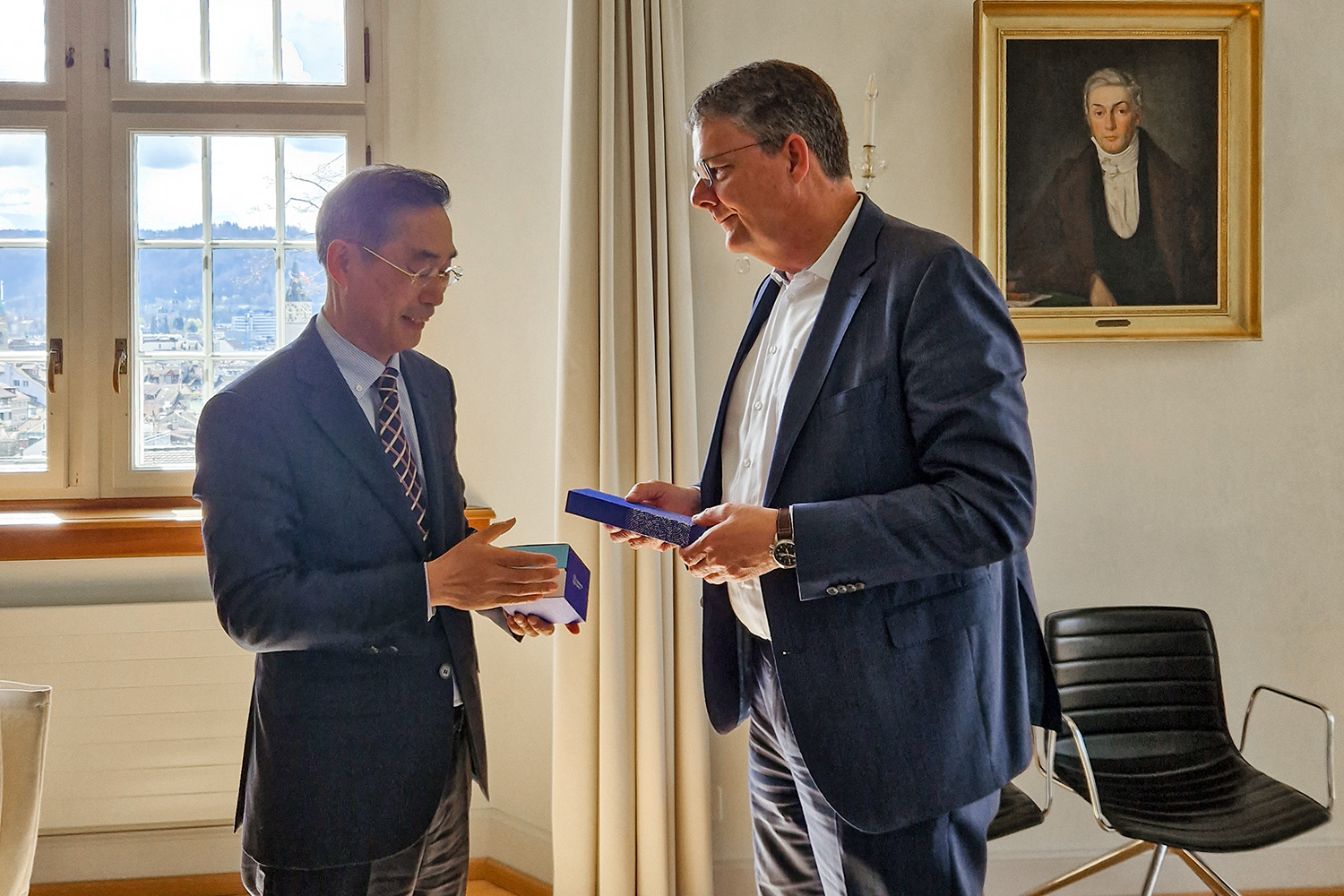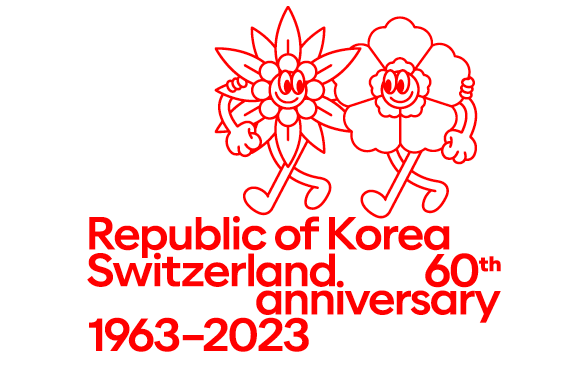UZH and Korea Discuss Deepening Collaboration
This year marks the 60th anniversary of diplomatic relations between Switzerland and the Republic of Korea. UZH welcomed Ambassador Chang Rok Keum on its premises to explore the potential for deepening the existing collaboration between UZH and Korea.

The bilateral exchange with UZH President Michael Schaepman, Prof. Wolfgang Behr and Prof. David Chiavacci, both representing UZH’s Institute of Asian and Oriental Studies, and the delegation from the Korean Embassy, led by Ambassador Keum, aimed at creating new synergies between UZH and Korean institutions.
Advancing research and innovation together
UZH has longstanding relationships with Korean research and higher education institutions. Both Switzerland and Korea are global innovation leaders, which naturally leads to intense collaboration between UZH and Korean researchers, particularly in the fields of biology, medicine, and neuroinformatics.
To further strengthen the exchange with Korean institutions, and in the context of the 60-year anniversary celebrations, UZH researchers will participate in the Swiss-Korean Innovation Week from 11 May to 23 May in Seoul. The Innovation Week is organized by the Swiss Embassy in Seoul and will feature various activities and events targeting multiple audiences.
During this week, Prof. Claudio Tessone, Co-Founder and Chairman of the UZH Blockchain Center, will provide insights on practical blockchain-based applications. Additionally, UZH will exhibit a video installation in downtown Seoul, called “Triggered by Motion”, showcasing how machine learning can be used to preserve biodiversity.
Studying Korean culture and language at UZH

Apart from the intensive collaboration in research, there is also an active student exchange and mobility between UZH and Korean universities, reflecting the growing interest in Korean culture and language among students in Switzerland. The popularity of “Made in Korea” products such as music, film, fashion, cosmetics and food has led to a surge in the number of foreign students studying in Korea. Researchers refer to this trend as the 3rd “Korean wave”, which began in the early 1990s and, with the rise of Korean global entertainment brands in recent years, has spread to countries in the Western hemisphere.
Recognizing the growing popularity of Korean culture, UZH resumed its previously discontinued Korean studies lectures already in 2009, which includes East Asian Art History and Korean language classes. Starting in fall 2023, UZH will expand its offering of Korean language courses. This will provide UZH students with a unique opportunity to deepen their understanding of Korean culture and language.
UZH and Korean institutions are strong partners
Whether it is the interest in each other’s culture or the collaboration in research and innovation, both the Ambassador and the UZH representatives agreed that these common interests between UZH and Korean institutions will contribute to an even stronger joint advancement of research, innovation and teaching in the future.
Raphael Kunz

